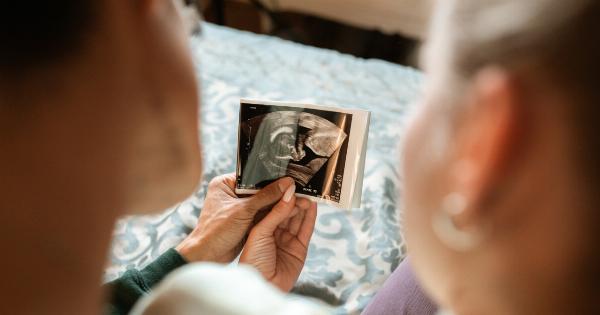Pregnancy is a time of great joy and anticipation for most women. However, it is also a time when mothers-to-be need to be extra cautious about their health and lifestyle choices.
One such choice that should be avoided at all costs is drinking alcohol during pregnancy. The risks associated with alcohol consumption during pregnancy are significant and can have lifelong effects on the unborn child. In this article, we will explore the reasons why drinking during pregnancy is never worth the risk.
The Impact of Alcohol on Fetal Development
When a pregnant woman consumes alcohol, it easily crosses the placenta and reaches the developing fetus. Unlike adults, the fetus lacks the enzymes to break down alcohol, leading to higher and more prolonged exposure.
This exposure can have detrimental effects on the fetus’s development, causing a wide range of physical, behavioral, and cognitive impairments.
Fetal Alcohol Spectrum Disorders (FASDs)
The most severe consequence of prenatal alcohol exposure is a group of conditions collectively known as Fetal Alcohol Spectrum Disorders (FASDs).
FASDs can cause lifelong physical and mental disabilities, including facial abnormalities, growth deficiencies, intellectual disabilities, and problems with learning, memory, and attention. These disabilities are entirely preventable by abstaining from alcohol during pregnancy.
The Role of Timing and Dosage
Research has established a clear link between the timing and dosage of alcohol consumption during pregnancy and the severity of FASD symptoms.
The first trimester, when many women may not yet be aware of their pregnancy, is a particularly critical period. Even moderate alcohol consumption during this time can significantly increase the risk of developmental issues.
However, it is important to note that there is no safe level of alcohol consumption during pregnancy, and complete abstinence is always the best choice.
Long-Term Effects on Behavior and Learning
Besides the physical abnormalities and cognitive impairments associated with FASDs, alcohol exposure in utero can also lead to long-term behavioral and learning difficulties in children.
These may include hyperactivity, poor impulse control, difficulties with social interactions, and problems with academic achievement. By avoiding alcohol during pregnancy, mothers can significantly reduce the risk of such challenges for their children.
The Importance of Supportive Partners and Social Networks
While it is crucial for expectant mothers to avoid alcohol during pregnancy, it is equally important for their partners, families, and friends to provide support and encouragement.
Having a strong support network can help reduce stress and promote a healthy lifestyle, encouraging expectant mothers to make the best choices for themselves and their unborn babies. Open discussions and education about the risks of alcohol during pregnancy can also raise awareness and help prevent accidental exposure.
Alternatives to Alcohol
For some women, the idea of abstaining from alcohol during pregnancy can be challenging. However, it is important to remember that there are plenty of enjoyable and safe alternatives available.
Opting for mocktails, non-alcoholic beer, or alcohol-free wine can provide the experience of enjoying a drink without any of the risks. There are also various other beverages and creative non-alcoholic recipes that can be both delicious and refreshing during pregnancy.
Seeking Professional Advice
If you find it difficult to abstain from alcohol during pregnancy or have concerns about your alcohol consumption before realizing you were pregnant, it is essential to seek professional medical advice.
Physicians, midwives, and other healthcare providers are there to support and guide you through this journey, ensuring the best outcomes for you and your unborn child.
The Bottom Line: No Amount of Alcohol Is Safe
Drinking alcohol during pregnancy is never worth the risk. The potential consequences to the developing fetus are vast, and the effects can be long-lasting and irreversible.
To protect the health and well-being of both mother and child, it is imperative to prioritize abstinence from alcohol and seek out healthy alternatives. By making this commitment, expectant mothers can provide the optimal conditions for their baby’s growth and development.































